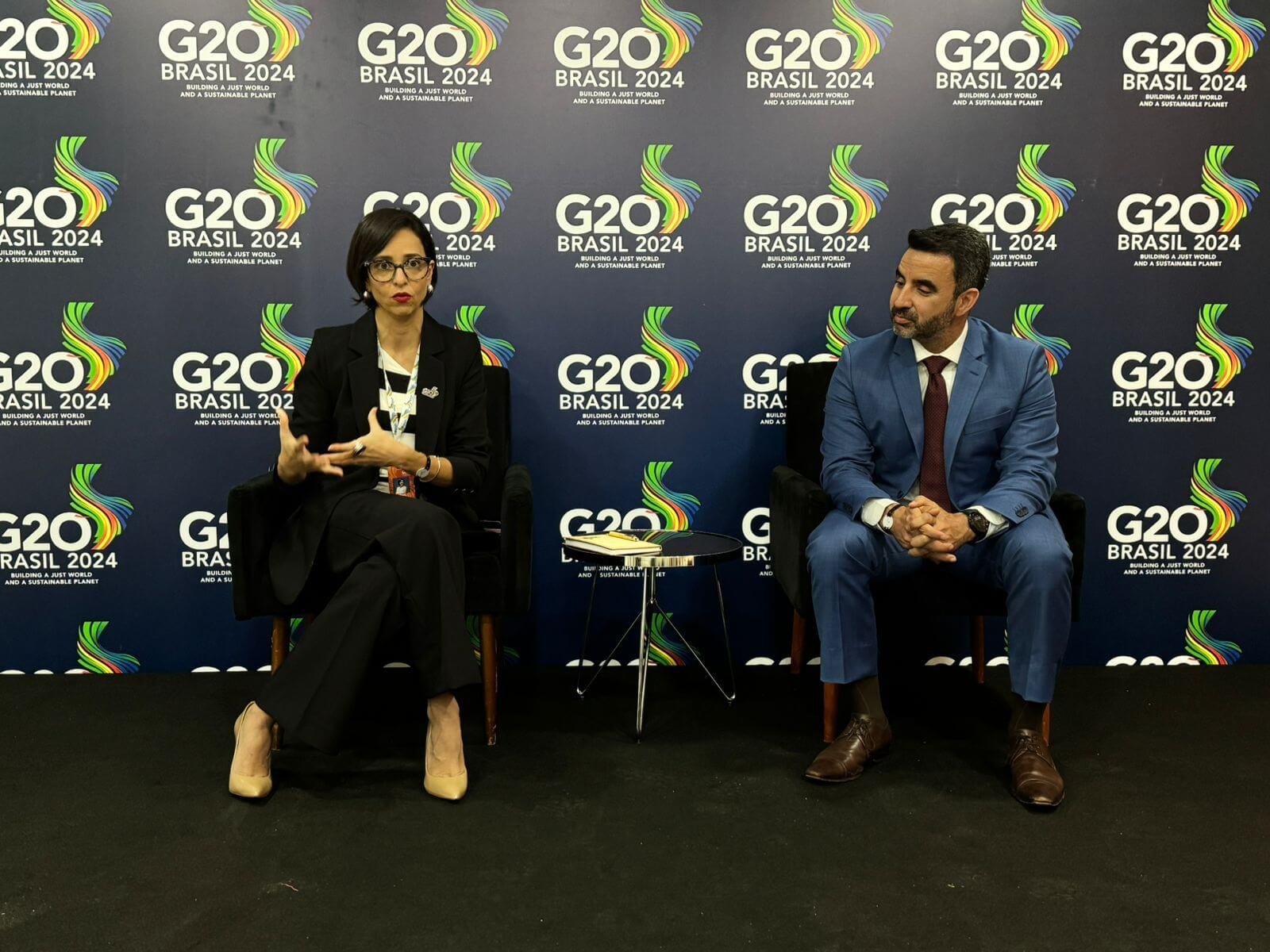Corruption exacerbates inequalities and drains resources from the most vulnerable, warn secretaries from the Comptroller General of the Union (CGU) at the G20
The G20 Anti-Corruption Working Group meeting in Natal reinforced the need for international cooperation and promoting integrity in the public and private sectors.

The G20 anti-corruption ministerial meeting, held in Natal (RN), brought to light substantial discussions on public and private integrity and highlighted the impact of corruption on social and environmental inequalities. During the final balance of the event held in Natal, the representatives of the Comptroller General of the Union (CGU), Marcelo Pontes Vianna, Secretary of Private Integrity, and Izabela Moreira Correa, Secretary of Public Integrity, presented the results obtained, which culminated in the preparation of a Ministerial Declaration that will be presented at the G20 Leaders' Summit on November 18th and 19th in Rio de Janeiro.
Marcelo Pontes emphasized that the Anti-Corruption Working Group focused on how fighting corruption can contribute to a more equitable and sustainable world. "Our main concern this year was to discuss how the world's largest economies can convert their decisions into effective changes for society," he said.
The meeting included a side event with experts, where ways to promote integrity and tackle corruption crimes related to the environment were discussed. Izabela Correa explained that one of the main objectives was "to learn from global experiences to build more effective and fair policies." She stated that corruption not only drains public resources but also contributes to worsening social inequalities and environmental degradation.
The Ministerial Declaration represents a commitment that had been negotiated for two years. Vianna celebrated the consensus reached under the leadership of Brasil, noting that the document recognizes the impact of corruption on poverty, social inequality, and the environment. "Corruption directly affects the most vulnerable, diverting resources that should be allocated to public policies that would improve the lives of these people," he said.
In addition, the High-Level Principles document was approved, which guides countries on how to encourage companies to adopt better integrity practices. According to Vianna, this approach goes beyond the prevention of corruption and involves the protection of human rights, sustainability, and labor rights. "We want integrity to be applied fully, not just in isolated sectors," he said.
Another outcome highlighted by Izabela was the Accountability Report, which assesses how G20 countries are implementing recommendations made in previous years. “This report is an essential tool for monitoring countries' progress in promoting integrity and preventing corruption,” she explained.
Artificial intelligence (AI) was one of the emerging topics discussed at the meeting. AI development presents both opportunities and challenges for fighting corruption, and the CGU representatives highlighted the importance of exploiting these technologies ethically. Izabela mentioned that the report points to the need for new governance mechanisms to deal with the risks and opportunities that AI brings to the fight against corruption.
The importance of the private sector's involvement in the fight against corruption was highlighted by both Vianna and Izabela. “The private sector is a key player in this fight. We need to encourage them to adopt integrity measures that go beyond mere legal compliance," said Vianna.
In addition, the inclusion of civil society in the process was seen as an important milestone. During the group meetings, four engagement groups actively participated in the discussions, and the civil society had the opportunity to collaborate in the elaboration of important documents, such as the Background Paper, which served as the basis for the ministerial declaration. "We are building a more collaborative and participatory governance," said Izabela.
When asked about the relevance of the anti-corruption issue in the context of the G20, Vianna and Izabela were emphatic about the direct impact on people's lives. "When we talk about corruption, we are talking about methods that divert resources from essential public policies, harming those who need it most," explained Vianna. He stressed that a culture of integrity directly benefits people who depend on quality public services, as well as creating a fairer environment for entrepreneurs who follow the rules.
Izabela added that the fight against corruption should involve all of society. "We need to consider integrity broadly, involving the public, the private sector, and civil society. Transparency and access to information are fundamental to ensure that public policies are designed and implemented in a fair and impartial manner," she noted.
She also highlighted that corruption is a transnational phenomenon and that international cooperation is therefore essential. "It is impossible to fight corruption without collaboration between countries, especially in a globalized world like ours. Asset recovery and international cooperation are fundamental," she concluded.
Regarding Brasil's presidency in the Anti-Corruption Working Group, Secretary Marcelo Pontes assessed that Brasil leaves a legacy not only for the approved documents but also for the way it led a more collaborative and inclusive governance process. Secretary Izabela Correa reinforced that the group's work does not end with the ministerial meeting. “Now is the time to ensure that all the commitments made here are put into practice and that we continue to move forward constantly,” she said. She concludes that the meeting in Natal was not only a point of debate “but the beginning of a new phase in the fight against corruption, with impacts that promise to transform public policies and the lives of people around the world.”
Translated by PGET-UFSC